NIJ Certified vs. NIJ Compliant vs. NIJ Tested/Rated: What's the Difference?
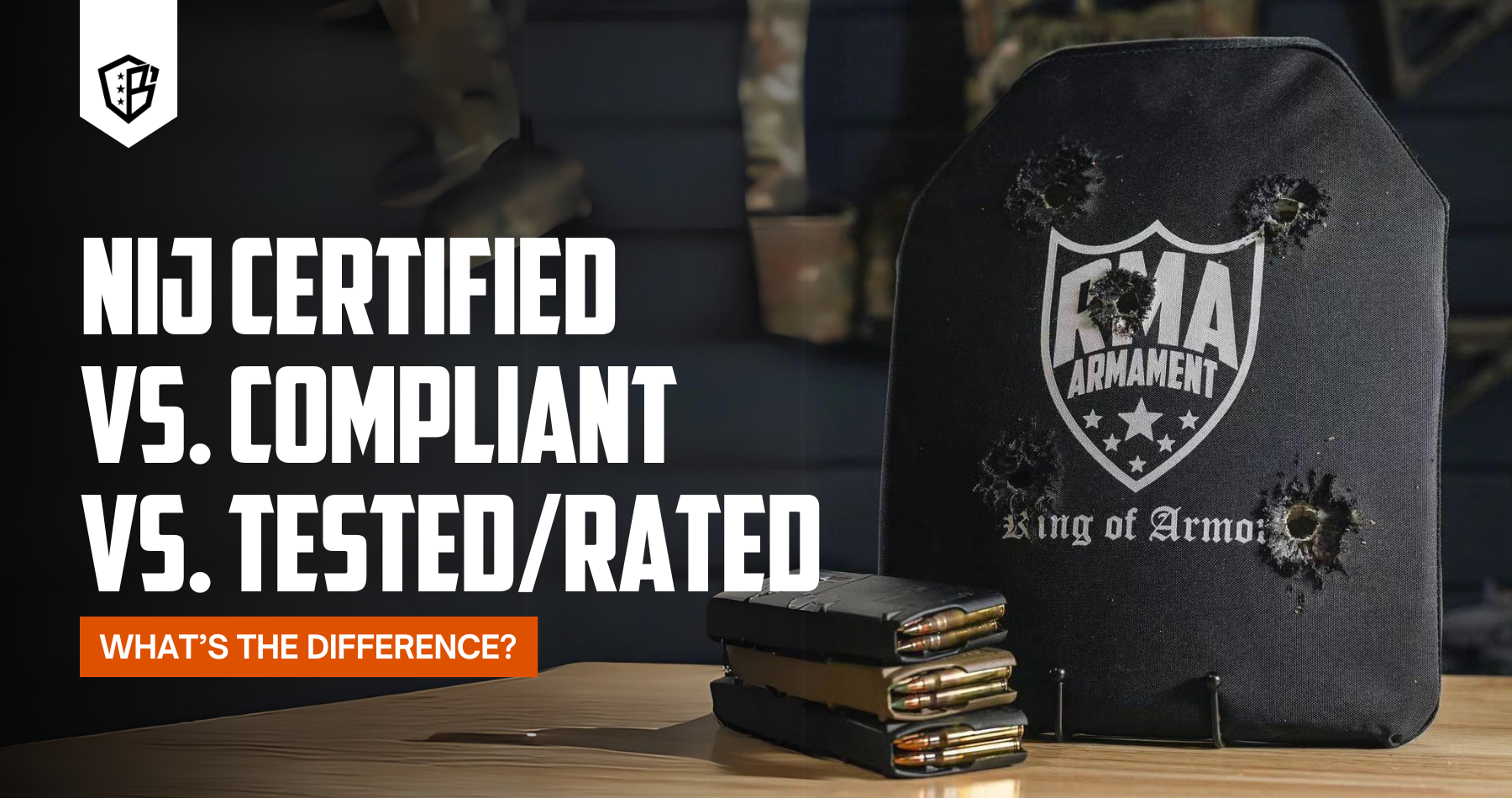
Some people will try to tell you these labels all mean the same thing, but this is false! In fact, there can be very significant differences between the testing protocol for NIJ certified armor and NIJ compliant armor.
It's important to know the difference between these labels, because when it comes to accountability, genuine NIJ certified protection is head and shoulders above certain brands that offer NIJ compliant body armor. Why is that? What exactly does NIJ certification involve that makes it superior? We're diving into these questions today so that you can make the best choice when it comes to potentially life-saving body armor.
What Is the NIJ?
The NIJ is the National Institute of Justice. They're the U.S. Department of Justice's official agency for research, development, and evaluation of any technology that could be applied to criminal justice. This, of course, includes body armor, particularly ballistic armor plates and bulletproof vests used by law enforcement.
NIJ Protection Levels
The NIJ sets the performance standards for body armor, describing what threat level each piece of gear can resist. All NIJ certified armor has been carefully tested to ensure it can protect a wearer against the type of gunfire or projectiles it is designed to defeat.
For instance, per NIJ Standard 0101.06, the below NIJ protection levels have been tested to defeat the following range of ammunition:
-
Level IIIA: 9 mm rounds traveling at speeds of up to 1400 ft./s.; .44 magnum rounds.
-
Level III: Six hits from a 7.62x51 NATO round traveling up to 2780 ft./s
-
Level IV: A single hit from a 7.62MM armor piercing rifle (APR) bullet with a velocity of 2880 ft./s.

How NIJ Certification Works
NIJ certification doesn't just involve shooting tests against likely ballistic threats. It also involves putting the armor (7 to 37 samples of it) through various types of "torture" to assess how well it performs in a range of worst-case scenarios and extreme conditions.
Not only that, the certification also includes random quality control inspections every one to two years to check that plates are consistently defeating the ballistic threat range they're designed to handle.
It's an understatement to say that a lot of precision goes into the NIJ certification of body armor. The multi-stage testing process is designed to be rigorous and consistent for the utmost in quality control accountability. The test is carried out in an NIJ-approved laboratory, and each element of the process is based on years of research and input from ballistics experts, law enforcement, and military.
In more detail, the following are the steps involved in NIJ certification:
1. Inspection
Armor samples are weighed, photographed, and carefully inspected by lab technicians for solid workmanship and quality.
2. Tempering
Before being shot tested, some of the body armor samples are subjected to tempering, while others are not. Tempering involves:
-
Thermal conditioning in a thermal cycling chamber: This exposes the plate to extreme temperature changes every two hours to assess the quality of the adhesive materials used in the plate. Heat levels range from 5 F to 194 F.
-
Static heat exposure in a heat exposure chamber: The plate is subjected to a temp of 149 F for 10 days.
-
Full submersion: The plate is fully immersed and soaked in water. Shot testing is then conducted while the plates are still dripping wet.
-
Drop testing: To gauge an armor's performance after falling onto a hard surface, the plate is loaded up with 10 lbs. and then dropped onto the strike face from a height of four feet onto hard concrete. This is performed twice.
3. Shooting Test
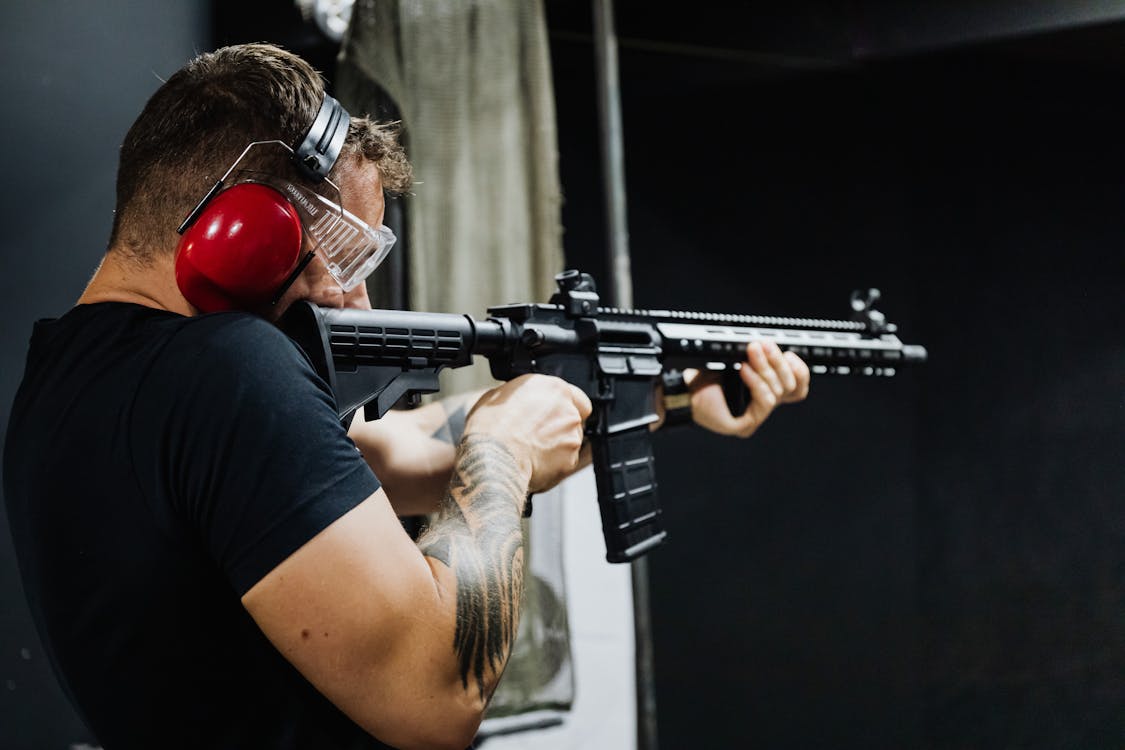
The plates are mounted on a special clay backing with a consistent hardness and temperature. There are then two types of shot tests the body armor will be subjected to:
-
Perforation and Backface Signature (P-BFS/"V0"): This test shows how much the plate dents inward, toward the wearer's body, with ballistic impact. The P-BFS must be below 44 mm to pass.
-
Ballistic Limit (BL/"V50"): This test reveals the velocity at which a piece of body armor stands a 50/50 chance of being either partially or fully penetrated by a bullet. This is to ensure the armor can resist velocities higher than the advertised striking velocity of the ammunition.
Every element of the shooting test is recorded and controlled, including the angle, distance, and the velocity and number of the shots.
4. NIJ Follow-Up Inspection and Testing (FIT)
Not actually a part of the certification process, the NIJ FIT test involves random quality control testing of certified body armor to check that the plates are performing to standard.
For manufacturers certified by the International Organization for Standardization (ISO), this is carried out every two years. For non-ISO certified companies, the NIJ FIT test occurs annually, more or less.
How To Identify NIJ Certified Body Armor
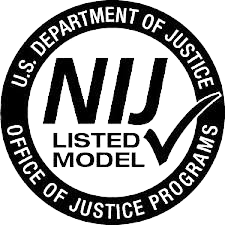
To identify armor that has been tested and certified as meeting NIJ standards, look for the NIJ Listed Motto logo. For hard armor, look on the back of the plate. For soft armor, look on the inside panel. Alternatively, check the Compliant Products List for your particular plate or vest to see if it's certified.
What Is NIJ Compliance?
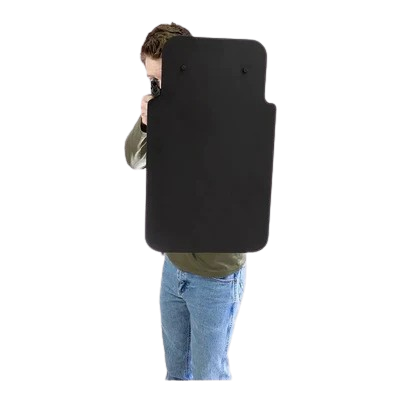
A label indicating that a piece of body armor is "NIJ Compliant" means that it meets NIJ performance standards but is not officially certified by the NIJ.
This could be for one of two reasons:
-
The NIJ didn't test the armor. Instead, the company itself carried out the testing and concluded that the product met NIJ standards.
-
The product is a type of body armor that the NIJ does not do testing for, such as bulletproof backpack inserts, helmets, ballistic shields, or Level III+ body armor. It's impossible for these items to be NIJ certified because there is no certification process for them.
What Does NIJ Tested Mean?
"NIJ tested" basically has the same meaning as NIJ compliant: The body armor was likely given a shooting test, but it's not NIJ certified.
NIJ Certification vs. NIJ Compliance
Plates and Inserts
While certified is obviously the ideal choice, compliant armor can be a solid option as well if produced by a trustworthy manufacturer. In these cases, the company who makes the armor will often have their shooting tests carried out at the same NIJ-approved labs that do the ballistic tests for certified armor.
Why would a good body armor manufacturer choose not have a plate or insert certified -- especially if they're having it tested at an NIJ-approved lab? It usually comes down to money. Full-on NIJ certification can be expensive, not to mention time-consuming. The cost of certification is reflected in the price tag of the armor. This means having NIJ compliant products on offer ensures there are budget-friendly body armor options for customers unable to spend above a certain point.
However, lower-tier body armor companies will test a ballistic vest or plate only partially, at a random lab, or they'll test to an obsolete standard before labelling the product as compliant.
Other Types of Body Armor
Remember that when it comes to body armor that isn't a plate or vest insert, a label of NIJ compliant is the best you can get. It's compliant because the NIJ doesn't certify those types of items. Equipment like the shields law enforcement uses to protect themselves during riots are not NIJ certified, but they are NIJ compliant.
The same goes for helmets. That's right: all ballistic helmets are NIJ compliant/tested -- not certified.
Level III+ armor is another example. This threat level isn't one of the official standards, so just what a Level III+ plate protects against can be different from one manufacturer to another (though it typically means that the plate was tested to defeat Green Tips in addition to everything a certified Level III plate can handle).
The takeaway here is that certified armor is the top of the line. Compliant can be great from good brands, so look into the company's reputation before making a purchase.
The Importance of Certified Armor
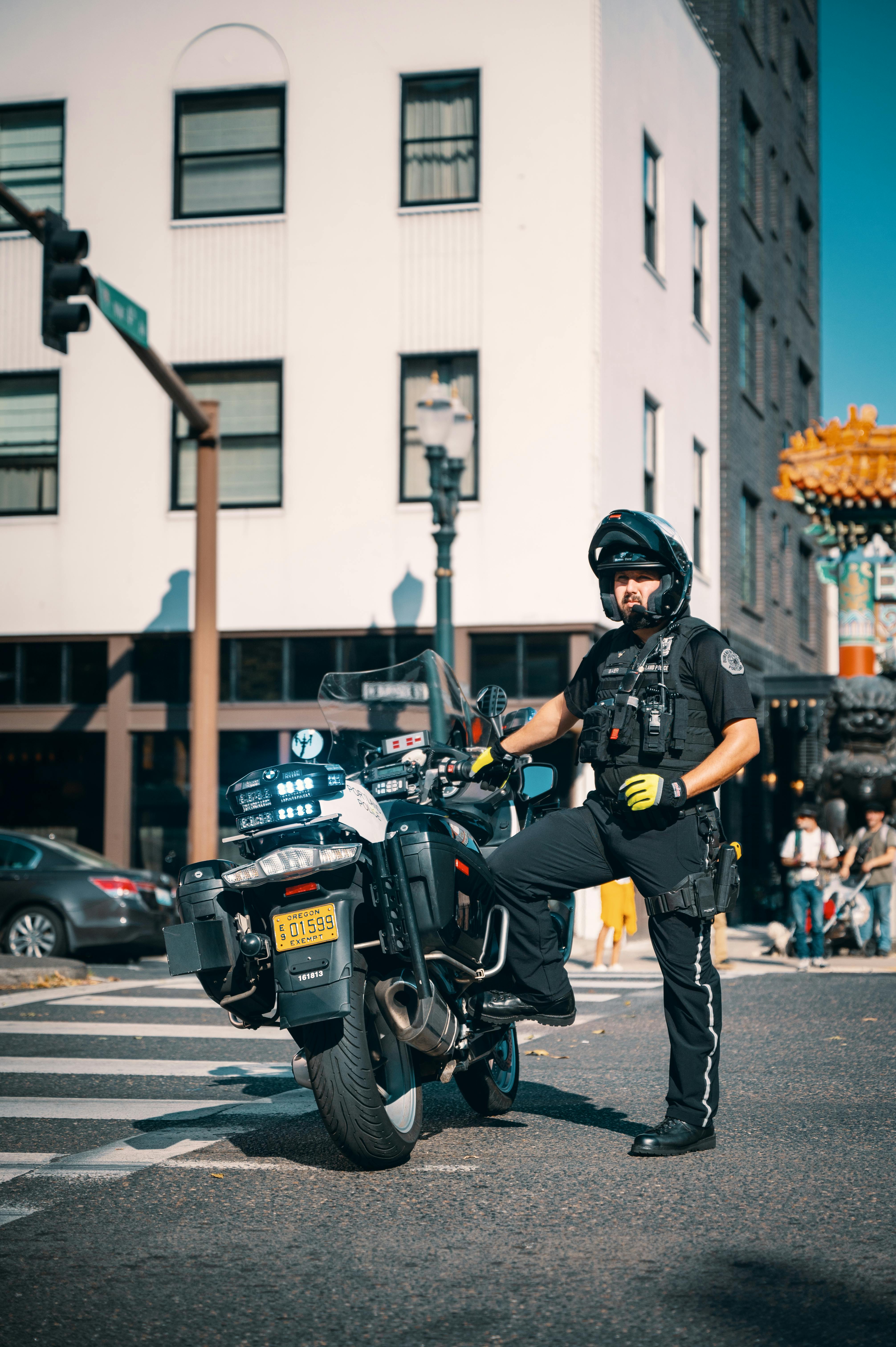
The NIJ Standard is the gold standard for body armor. The National Institute of Justice carries out rigorous testing on hard plates and soft armor inserts before stamping them with their official seal of approval. When it comes to possibly saving your life, you want something with that kind of accountability behind it.
If you're looking at plates or inserts and thinking of buying one labelled "NIJ Compliant" or "Tested to NIJ Standards," opt for one of the many reputable manufacturers out there. Browse our body armor collection to see who they are; we only partner with the best.
Do you own NIJ certified or NIJ compliant armor? If not, what are you thinking of getting? We'd love to hear about it in the comments below!






